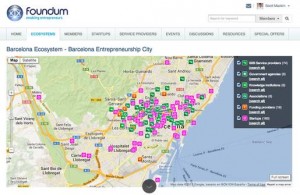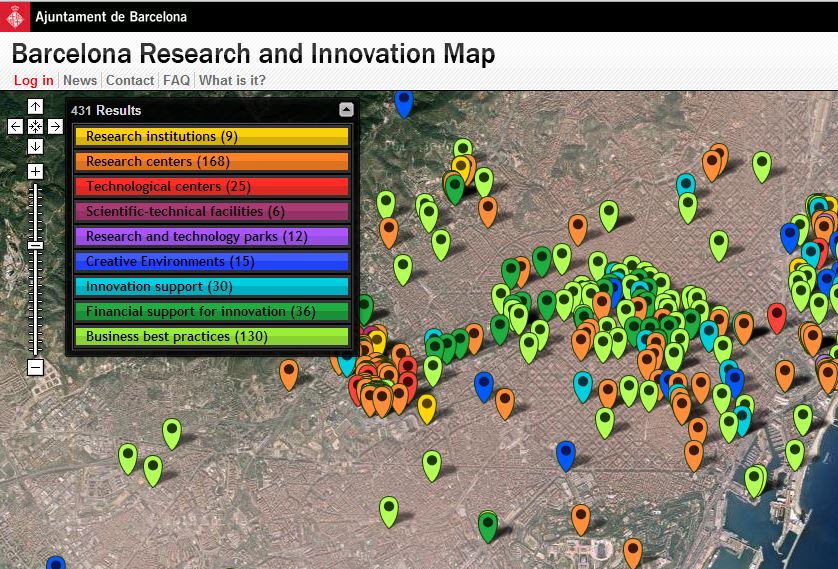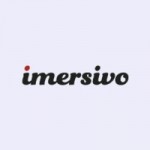For a while now, we (and many others*) have been writing about the potential of the Barcelona ecosystem as a hub for entrepreneurship and innovation.  The “potential” being characterized by elements such as entrepreneurial tools (e.g. universities and business schools), incubators programs**, co-working facilities with fast and cheap internet, mentor programs, angel investors, and R&D facilities from MNC and top of the world knowledge institutes. But how does this scene look geographically? How big is it? Well, different platforms provide different overviews. Let’s take a look.
The “potential” being characterized by elements such as entrepreneurial tools (e.g. universities and business schools), incubators programs**, co-working facilities with fast and cheap internet, mentor programs, angel investors, and R&D facilities from MNC and top of the world knowledge institutes. But how does this scene look geographically? How big is it? Well, different platforms provide different overviews. Let’s take a look.
In order to get a well rounded understanding, today we’ll investigate the four most known maps: Barcelona Research and Innovation Map (BRIM), Spain startup map , Foundum and Startup Genome.
Scrolling through the maps, it is interesting to see the landscape with so much variety. It makes you think, what are the possibilities for synergies with my own business? Or perhaps, how could I benefit from the list of active institutions/investors based in Barcelona able to provide financial support?
Meet the maps
Spain startup map
Spain Startup Map is a map that strives to represent the Spanish startup ecosystem using Google Maps technology. Created to connect and promote the Spanish startup community, it works on the basis of crowdsourcing, and everyone can submit companies and events.
Spain Startup Map uses the most categories, since within each category, breakdowns can be made (e.g. to sector). The website shows a complete map of Spain where you can then zoom into Barcelona. The quantity of participants in Barcelona is not specified, but the map shows quite a few colors.
Startup Genome
The mission of Startup Genome is to enable local startup communities to collect, curate and display their city’s data in any way they’d like. It is for the community, by the community. Next to the map you can also see a list of people and organizations involved. Soon charts will be visible for research.
To add a company, it’s advised to become a member. After all, membership is free. Another option would be to become a curator for Barcelona. This is needed, since Barcelona lacks a lot of data and is almost empty. Compared to the others, this map currently has the least value for Barcelona. In the same category you’ll find BCN Tech Map , a work in progress focusing on tech-based companies.
Barcelona Research and Innovation Map
Barcelona Activa developed an overview of Barcelona Research and Innovation with the objective to provide information about research and innovation in the city. It positions companies and environments enabling innovation as well as the main technological research centers in the area. Searches can be conducted by filters on thematic tags (energy, bio pharmacy, health, food), by ‘innovative’ zones (@22, Diagonal university Zone) or by type of activity (see above table).
It adds up to 430 different areas in which innovation and research are somehow supported or conducted. Each organization or company has a factsheet with information on their work or research, as well as additional information in the form of links, pictures, videos, new products and services.
Foundum
Foundum is an online platform matching innovative high-growth entrepreneurs to private investors, advisors and service & funding providers in order to create thriving and successful entrepreneurial ecosystems. It supports entrepreneurs and their startups from seed to exit, enabling them to connect with stakeholders that can drive their growth and success at each stage of their business’s life cycle. They have four main target groups: entrepreneurs, investors, advisors and service providers.
Contrary to others, Foundum works on a membership-only basis. Vital company information is provided on both the interactive map and via search engine. To see the full details or to add a company, you must be a member. As an added value, Foundum also features an event calendar.
Review
After looking at the characteristics of four Barcelona ecosystem maps (some more advanced than others in terms of submitted participants and search features), the questions remain: Is this the complete map? Why do we have four separate maps? Doesn’t this seem like a whole lot of work and repetition? Of course, a few of the websites have their own business models written from their own perspective, while others are completely based on the community and crowdsourcing.
An argument often heard about the Barcelona ecosystem is that the ‘glue’ is missing. I suppose it would be more comprehensive if there were one general overview which could be seen as a basic database to start your search for synergies, collaboration, advice, finance and so on. Also, why not a place to add missing information about your own company or add as a marker on the map? Would you like to see one map instead of many separate ones? I would like to challenge the four featured databases and all those interested to think how the data could be merged and what the perfect map would incorporate. Which current database appeals most to you? Please leave a comment and let us know!
Depending on your feedback, Barcinno will organize a ‘workshop’ event to put in place the recommendations from this post and one comprehensive map (of course, without reinventing the wheel yet again).
*To give you an overview, below are four articles to give you an idea of what is out there:
- A deep dive into Barcelona’s startup ecosystem, and how it’s much like the Sagrada Família by Robin Wauters (Next Web) + especially all the comments.
- Barcelona Startup Ecosystem: how to make it awesome by Claro Partners
- Barcelona hottest startups 2012 by Maruxa Ruiz del Árbol
- And lastly, from our own Stewart Masters: Why you should startup in Barcelona!
** In the last six months several startup boot camps and competitions passed through Barcelona: Startup World, Seedcamp, StartupBootcamp, The Pirate’s Inn, The Next Web Barcelona Event, 3 day startup. Institutions like Barcelona Active and the Founders Institute also offer programs to support entrepreneurs.








Leave a Reply